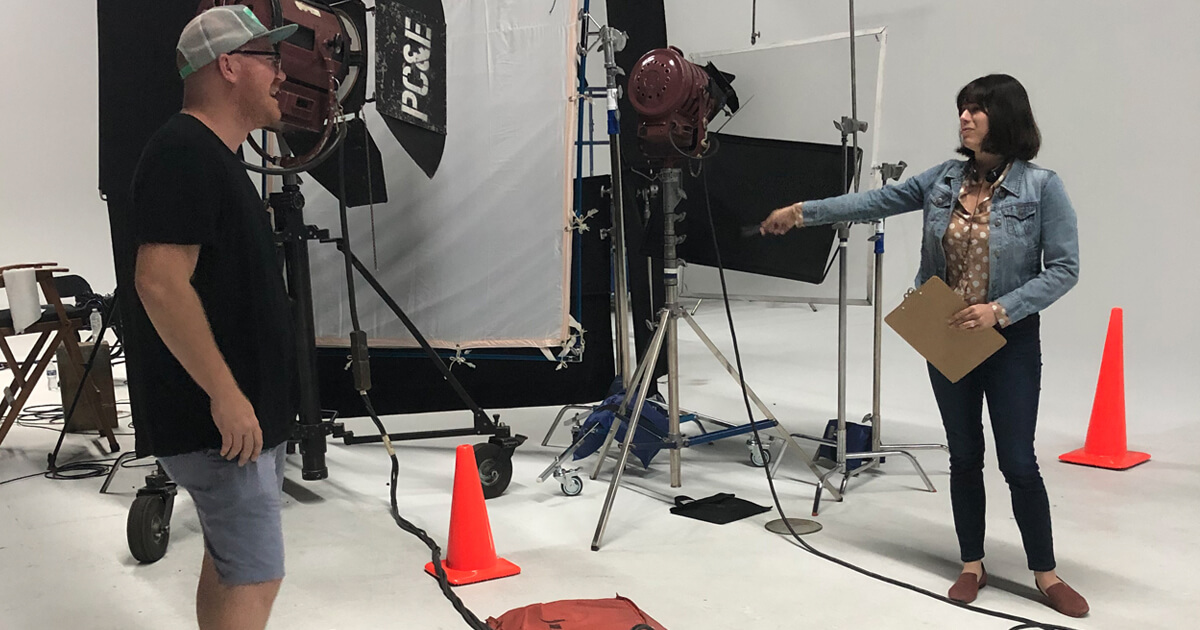How Event Production Works: A Comprehensive Look at the Process
Event production is a facility and organized procedure that calls for cautious preparation and execution. It begins with establishing clear purposes and understanding the target audience. Each action, from budgeting to venue selection, plays a vital function in guaranteeing success. As the process unravels, numerous aspects need to line up flawlessly. The subtleties of this intricate procedure commonly go unnoticed. What are the vital stages that add to an unforgettable event?

The First Preparation Phase
When starting on event production, mindful planning is necessary to guarantee a successful outcome. The preliminary preparation phase acts as the structure for all subsequent initiatives. Throughout this stage, event manufacturers must specify the event's function and purposes plainly. Determining the target market assists customize the experience and messaging, ensuring relevance and engagement.Producers should also think about the event style, whether it be in-person, virtual, or hybrid, as this will influence various logistical components. Picking a suitable day and location is essential, as it affects ease of access and availability.Furthermore, constructing a reliable team is fundamental for dividing obligations and simplifying communication. Establishing a timeline with turning points warranties all tasks are completed on time. This stage entails thorough research study, consisting of recognizing possible challenges and devising methods to alleviate dangers. Inevitably, a well-structured initial preparation stage sets the tone for an effective event production journey.

Budgeting and Resource Appropriation
In event production, effective budgeting and resource allocation are essential for success - event production charlotte. Establishing economic criteria sets the foundation for all succeeding choices, while source circulation techniques ensure that every element of the event is effectively supported. Together, these components help preserve control over expenditures and maximize the usage of readily available resources
Developing Financial Parameters
Establishing monetary specifications is crucial to the success of any kind of event production, as it establishes the structure for reliable budgeting and resource allotment. This procedure begins with defining the general spending plan, which incorporates all aspects of the event, consisting of location expenses, catering, and advertising. By recognizing offered funds, event organizers can focus on expenses and assign resources as necessary. On top of that, it is necessary to conduct complete market research to expect possible expenses and recognize funding sources, such as sponsorships or ticket sales. Developing clear economic parameters also aids in risk monitoring, enabling coordinators to reserve contingency funds for unforeseen expenses. Eventually, a well-defined budget plan works as a roadmap, directing the event production team in the direction of accomplishing their goals while keeping financial control.
Resource Circulation Strategies
Reliable source circulation approaches are important for maximizing the impact of an event while sticking to budget plan restrictions. Successful event production calls for a meticulous technique to budgeting and source allowance. Organizers must prioritize important elements such as place, catering, and innovation, making sure that funds are allocated to locations that boost guest experience. A thorough spending plan ought to detail expected expenses and recognize areas for prospective cost financial savings, such as negotiating with suppliers or discovering sponsorship opportunities. In addition, tracking expenses throughout the preparation procedure assists prevent overspending. By utilizing calculated resource distribution, event manufacturers can provide an unforgettable experience while preserving fiscal duty, ultimately adding to the overall success of the event.
Location Choice and Logistics
Choosing the best venue is necessary to the success of any type of event, as it establishes the phase for the total experience. Location selection involves examining various aspects, including capacity, availability, and place. Planners should think about the target audience and the nature of the event, making sure the location aligns with the event's goals.Logistics play a substantial function in this procedure, including arrangements for seating, audiovisual equipment, and providing solutions. An appropriate place should promote smooth circulation for participants and staff, improving engagement.Additionally, evaluating prospective venues for features like car parking, restrooms, and fire escape is important for security and convenience. The timeline for safeguarding the place is additionally vital, as preferred locations may schedule promptly - event production charlotte. Subsequently, extensive preparation and prompt implementation can inevitably add to a seamless event experience, making location choice and logistics essential components of effective event production
Imaginative Concept Advancement
While the location establishes the physical stage, creative concept advancement forms the event's identification and story. This procedure starts with identifying the event's objective and target market, permitting event producers to develop an engaging style that reverberates with participants. Brainstorming sessions often consist of diverse point of views, fostering innovative ideas that straighten with the event's goals.Once a motif is established, visual aspects such as color palettes, signs, and decor are created to enhance the total atmosphere. Narration strategies may also be incorporated to create an appealing trip for individuals, guaranteeing a memorable experience. In addition, considerations concerning entertainment, activities, and interactive elements are aligned with the chosen concept, strengthening the theme throughout the event.Ultimately, efficient creative principle development assurances that every aspect of the event functions cohesively, leaving a lasting perception on participants and satisfying the event's goals. This foundational job lays the groundwork for subsequent planning and execution phases.
Collaborating With Suppliers and Distributors
Effective event production depends upon efficient cooperation with suppliers and distributors. Picking trusted companions, bargaining agreements successfully, and making certain prompt distributions are vital action in this process. Each of these elements contributes significantly to the overall success and smooth execution of an event.
Picking Reliable Allies
Just how can event planners assure a smooth production experience? Choosing reputable companions is vital in attaining this goal. Event planners should perform comprehensive research study to determine suppliers and vendors with a tried and tested performance history of quality. This consists of checking referrals, examining profiles, and reviewing customer responses. Coordinators ought to prioritize partners who show professionalism and reliability, timely interaction, and a determination to team up. Building strong connections fosters trust and enables fast analytical during the event. Additionally, it is advantageous to select local vendors that understand the Read More Here location and regional logistics. Ultimately, an effective event depends upon the synergy between coordinators and their companions, ensuring that every aspect of production runs smoothly and successfully.
Discussing Contracts Properly
Effective arrangement of contracts is an essential action in the cooperation in between event organizers and their suppliers and distributors. This process involves clear interaction of expectations, deliverables, and timelines. Planners ought to perform extensive study on market prices and industry criteria to develop a baseline for arrangements. It is essential to create a joint environment, motivating open discussion concerning terms, pricing, and possible backups. Coordinators ought to additionally prioritize recognizing the supplier's capabilities and limitations to align their demands successfully. Versatility can cause equally advantageous agreements, fostering lasting relationships. Crafting well-defined agreements that consist of details efficiency metrics can assist ensure liability, inevitably bring about effective event execution and fulfillment for all parties entailed.
Making Certain Prompt Shipments
Prompt distributions are important for the smooth execution of any type of event, needing persistent partnership between organizers and their suppliers and suppliers. Efficient interaction is important, as it helps develop clear assumptions regarding shipment timetables, amounts, and details needs. Planners commonly develop thorough timelines to outline vital turning points, making sure all events remain straightened throughout the process. Routine check-ins with suppliers can help recognize potential delays early, permitting positive services. Furthermore, constructing solid partnerships with reputable vendors fosters depend on and responsibility, which can cause better solution and this hyperlink prioritization. By focusing on these collaborative efforts, organizers can decrease disturbances, consequently improving the general efficiency of event production and making certain that all necessary products and solutions get here as intended.
Advertising and Promotion Strategies
While organizing an event, the success of marketing and promotion approaches can considerably affect participation and engagement. Reliable strategies commonly consist of a combination of electronic advertising, conventional marketing, and grassroots outreach. Making use of social media sites platforms enables real-time communication and targeted marketing, reaching particular demographics successfully. Email marketing campaigns can additionally involve possible attendees with customized web content and reminders.Collaborations with influencers or sector leaders can likewise enhance reliability and broaden reach. Creating engaging content, such as video clips or blog sites, helps to produce buzz and receive interest leading up to the event. Additionally, leveraging early-bird price cuts and special rewards can incentivize ticket purchases.Promoting with traditional networks, such as posters or regional media, remains pertinent, especially in community-focused occasions. A thorough method that integrates multiple approaches guarantees optimum exposure and interaction, inevitably adding to the event's success and the creation of a memorable experience for guests.
On-Site Implementation and Administration
On-site execution and monitoring are necessary components that identify the general success of an occasion. Efficient control during the event guarantees that all elements line up with the intended program. Event supervisors look after logistics, consisting of vendor coordination, equipment configuration, and guest solutions. Monitoring timelines and attending to any unanticipated issues are basic for maintaining a seamless experience.The team plays a substantial role, as skilled workers are in charge of different tasks such as enrollment, details circulation, and technical support. Communication amongst staff member is necessary; it promotes a joint atmosphere and allows quick resolution of challenges.Additionally, security protocols must be stuck to, guarding the health of all attendees. Post-event analyses are additionally component of on-site monitoring, supplying insights for future renovations. By focusing on these elements, event manufacturers can create remarkable experiences that meet or go beyond attendee assumptions while attaining the event's goals.
Regularly Asked Inquiries
Exactly how Do I Select the Right Event Theme?
Picking the right event motif entails considering the target market, event objective, and place. Researching existing patterns and collecting find out here now input from stakeholders can likewise influence innovative concepts that reverberate and develop an unforgettable experience.

What Prevail Blunders in Event Production?
Common blunders in event production typically consist of inadequate preparation, poor interaction among group members, budget plan mismanagement, disregarding to consider the audience's needs, and failing to carry out a complete post-event assessment for future renovations.
Just How Can I Gauge Event Success?
To determine event success, one can examine attendee complete satisfaction, engagement levels, budget plan adherence, and post-event comments. Key performance indications, such as ticket sales and social media sites interactions, also supply valuable insights right into general effectiveness.
What Should I Do if It Moistens the Event Day?
In case of moisten the day, the organizer must implement contingency strategies, such as safeguarding outdoors tents or moving tasks indoors. Interaction with attendees regarding changes is vital to ensure a smooth experience regardless of weather obstacles.
How Can I Make Sure Participant Interaction Throughout the Event?
